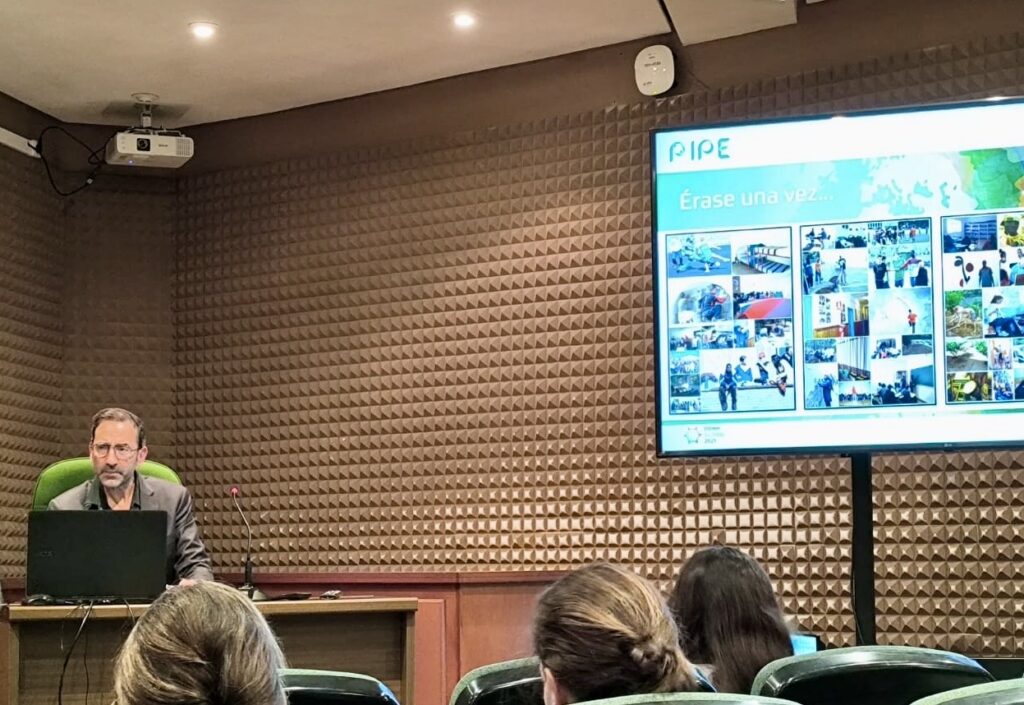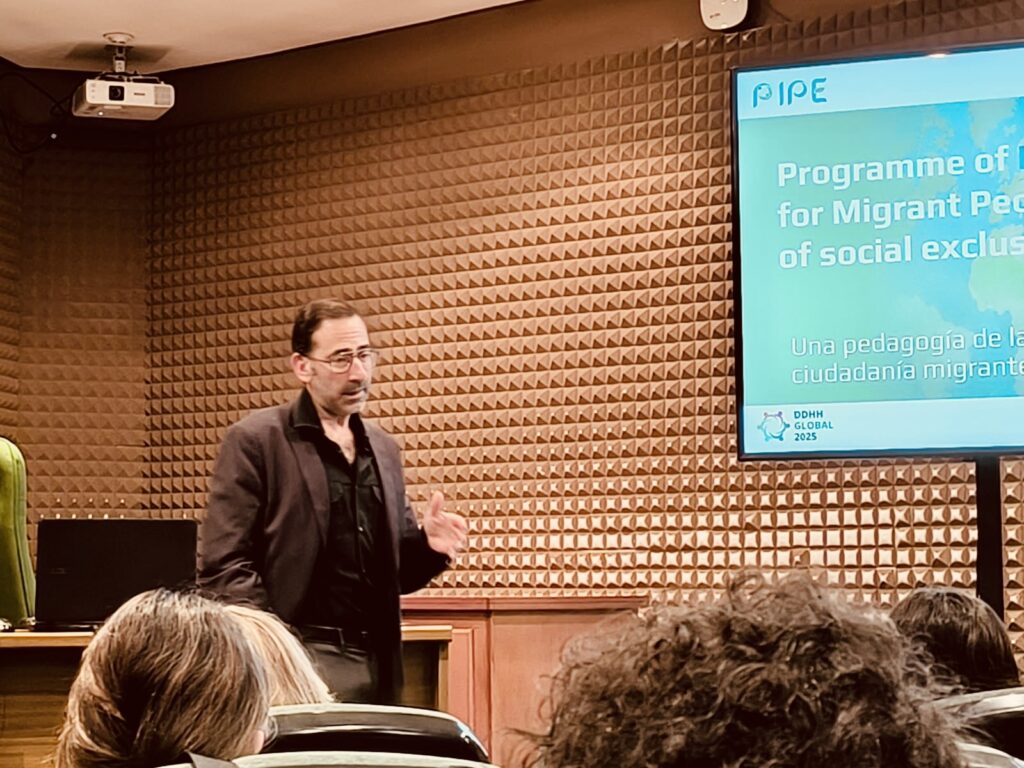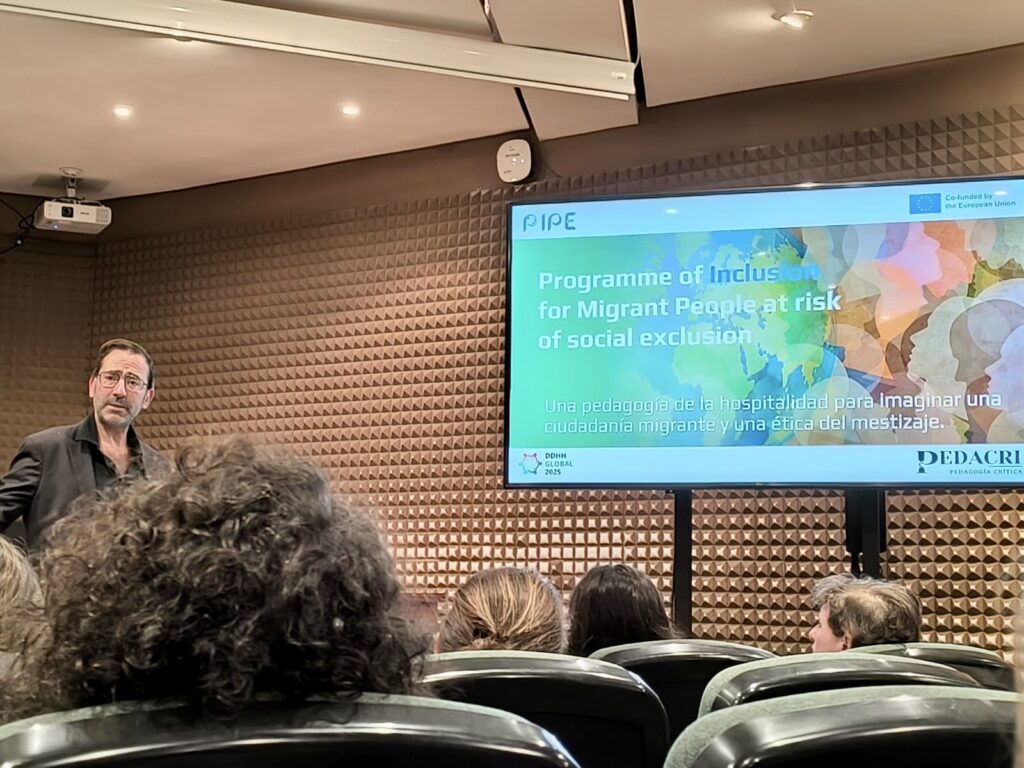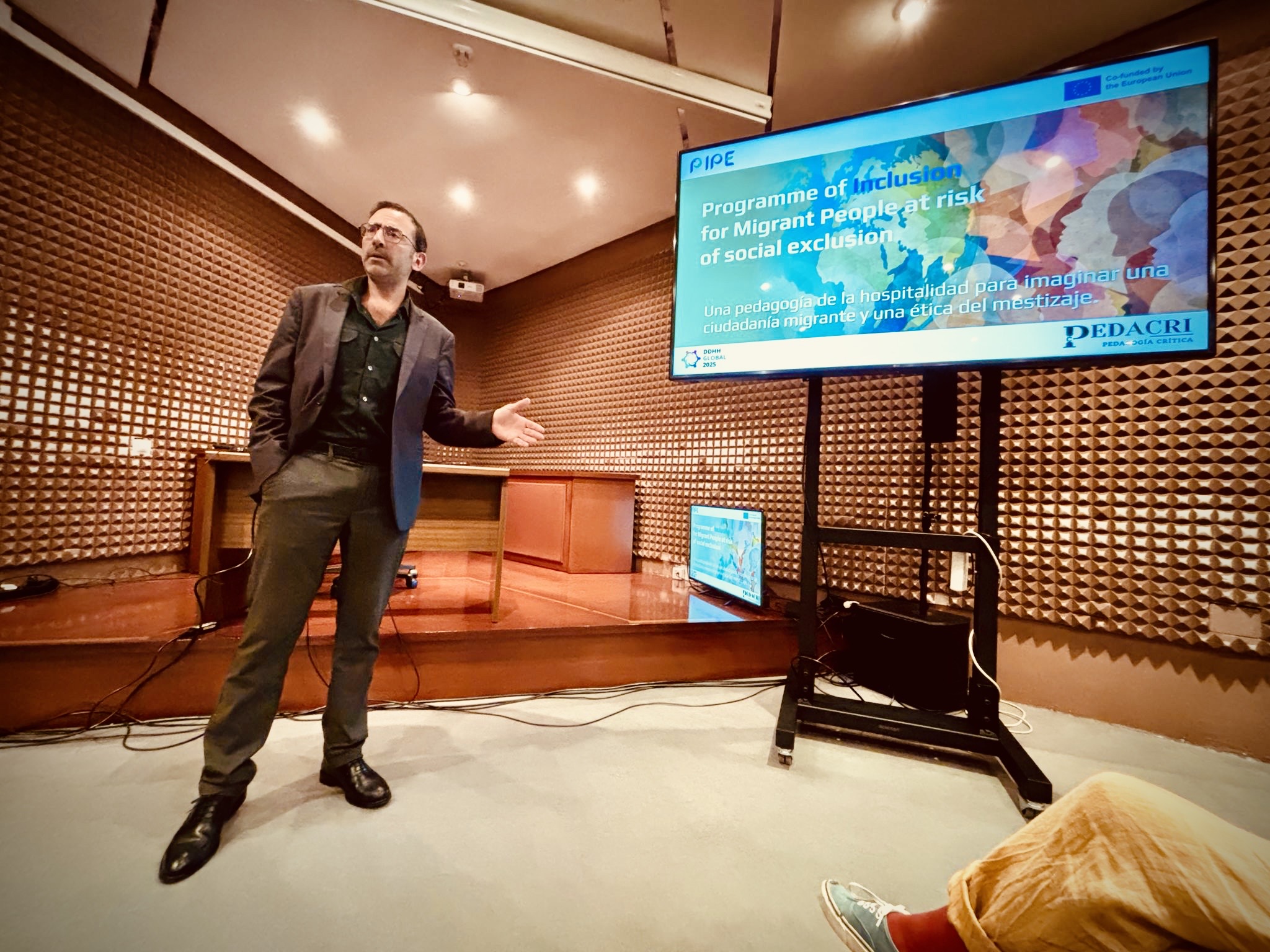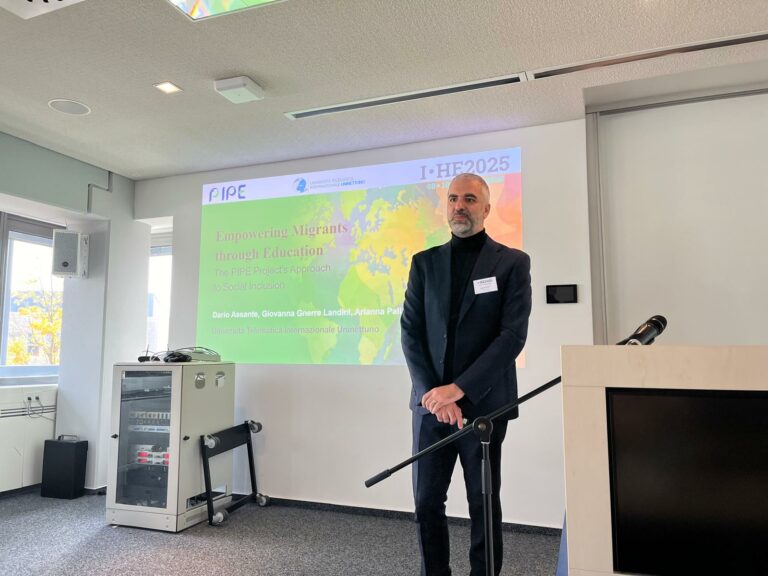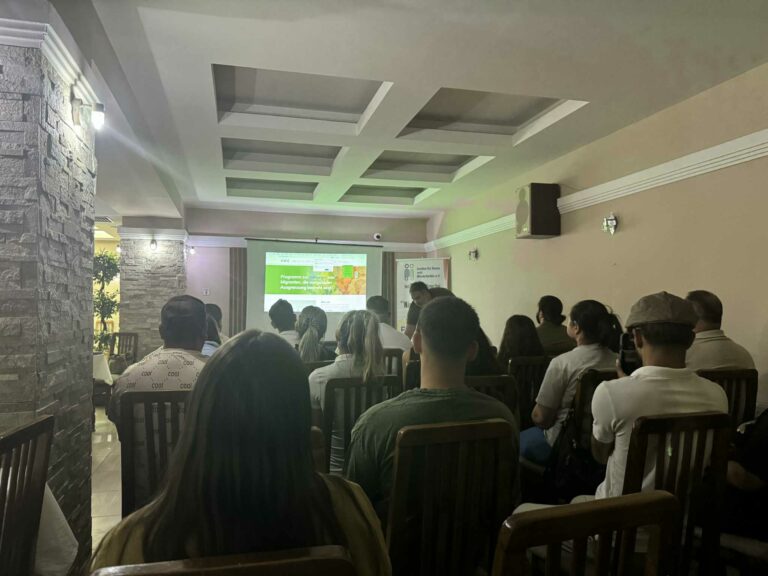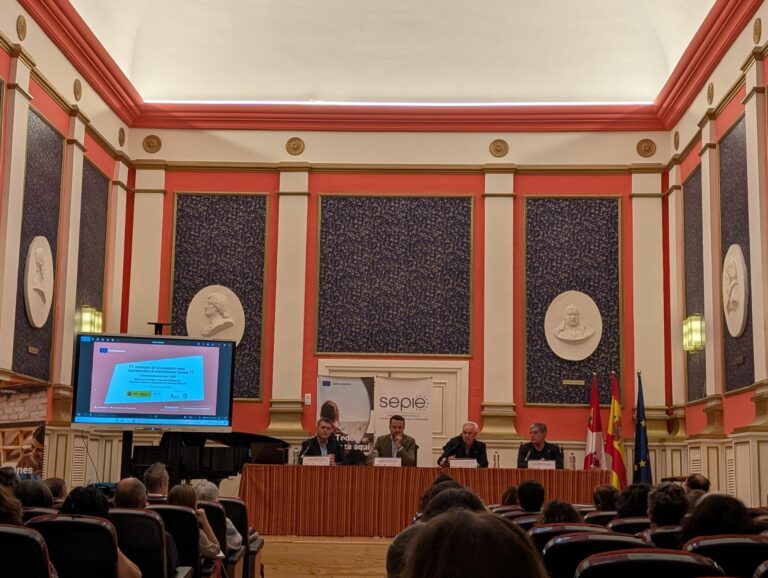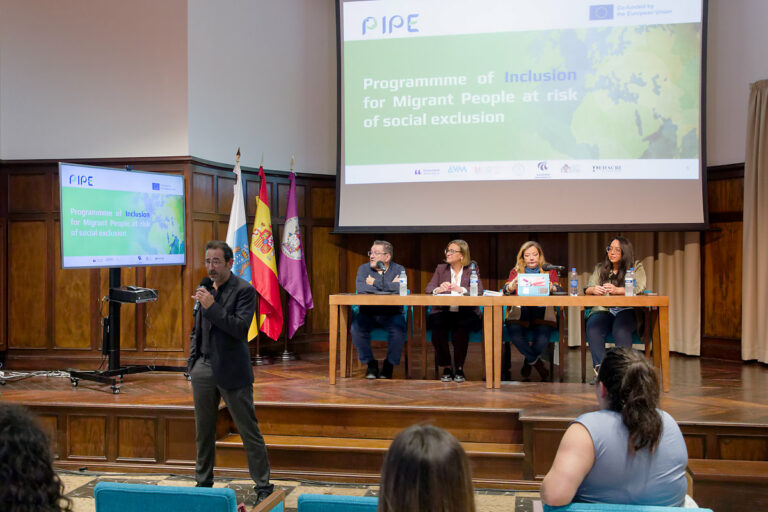On April 10, 2025, the University of La Laguna (ULL), represented by the PEDACRI research team, actively participated in the VI Congreso de Derechos Humanos y Globalización, held in Tenerife. Within the thematic axis Immigration, Vulnerability, and Human Rights at the EU Border, the team presented the contribution titled Pedagogy of Hospitality: Critical Reflection on Teaching Language to Migrants”, developed in the framework of the PIPE Project (Program for the Inclusion of Migrants at Risk of Social Exclusion), co-funded by the European Union (2023-1-ES01-KA220-ADU-000160578).
The Congress brought together scholars and practitioners to critically reflect on the legal, social, and cultural frameworks that define contemporary migration policies and their human consequences. In this context, the PEDACRI team offered a pedagogical response that is both innovative and deeply rooted in critical educational theory. Drawing from traditions of intercultural education and the ethics of hospitality, their proposal advocates for a transformative model of migrant inclusion—one that recognizes language education not simply as a tool for integration, but as a bridge for dignity, empowerment, and the construction of shared narratives.
The Pedagogy of Hospitality proposed by the PIPE Project embraces philosophical and educational traditions inspired by thinkers such as Lévinas, Derrida, Freire, and De Sousa Santos. It reimagines the language classroom as a space of mutual recognition, where intercultural dialogue and miscegenation are not exceptions but foundations. Rather than viewing hospitality as a gesture of generosity, the team insists it is a moral obligation, one that acknowledges migrants not as guests to be accommodated temporarily, but as co-constructors of the social fabric.
This vision is materialized in the PIPE digital platform, which offers a toolbox for professionals, volunteers, and institutions working with migrants. It promotes collaborative learning experiences, builds intercultural competencies, and supports the emergence of migrant citizenship grounded in social justice and community participation.
Academic Recognition
ULL is also pleased to announce that the paper “Pedagogy of Hospitality: Critical Reflection on Teaching Language to Migrants” has been published in Education Sciences (Q1), underscoring the academic relevance of this approach in the fields of migration and education.
Together, these recognitions reinforce the importance of language education as a vehicle for critical awareness, intercultural coexistence, and the full exercise of citizenship.
